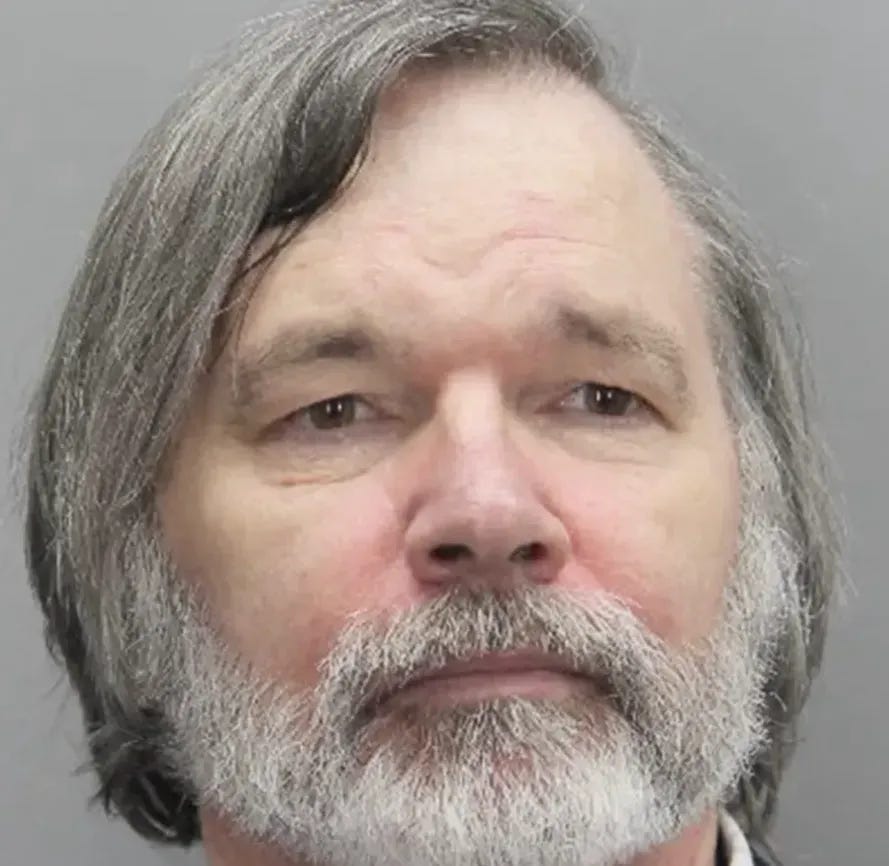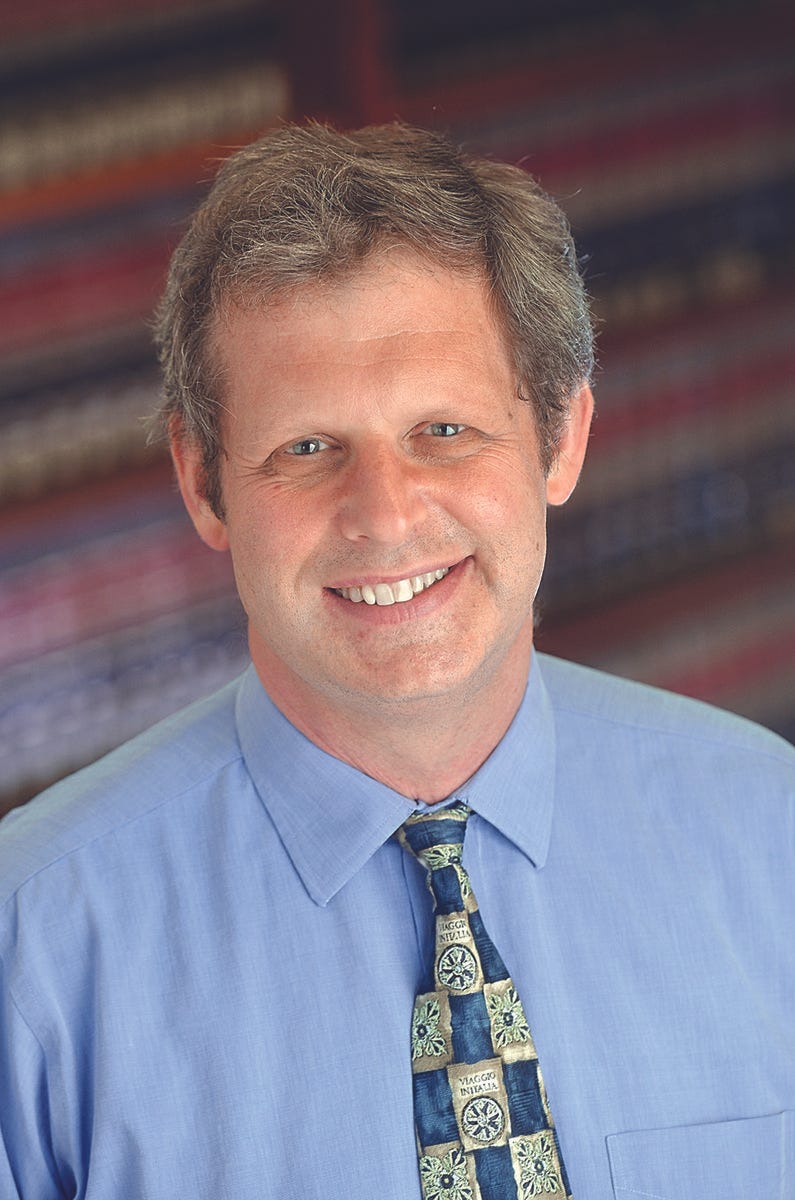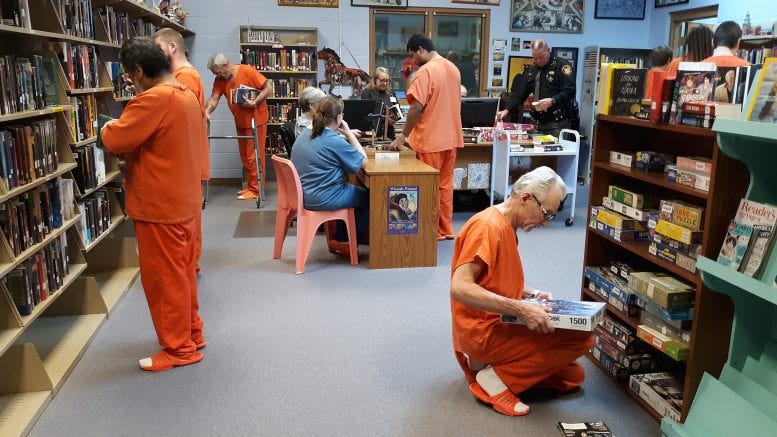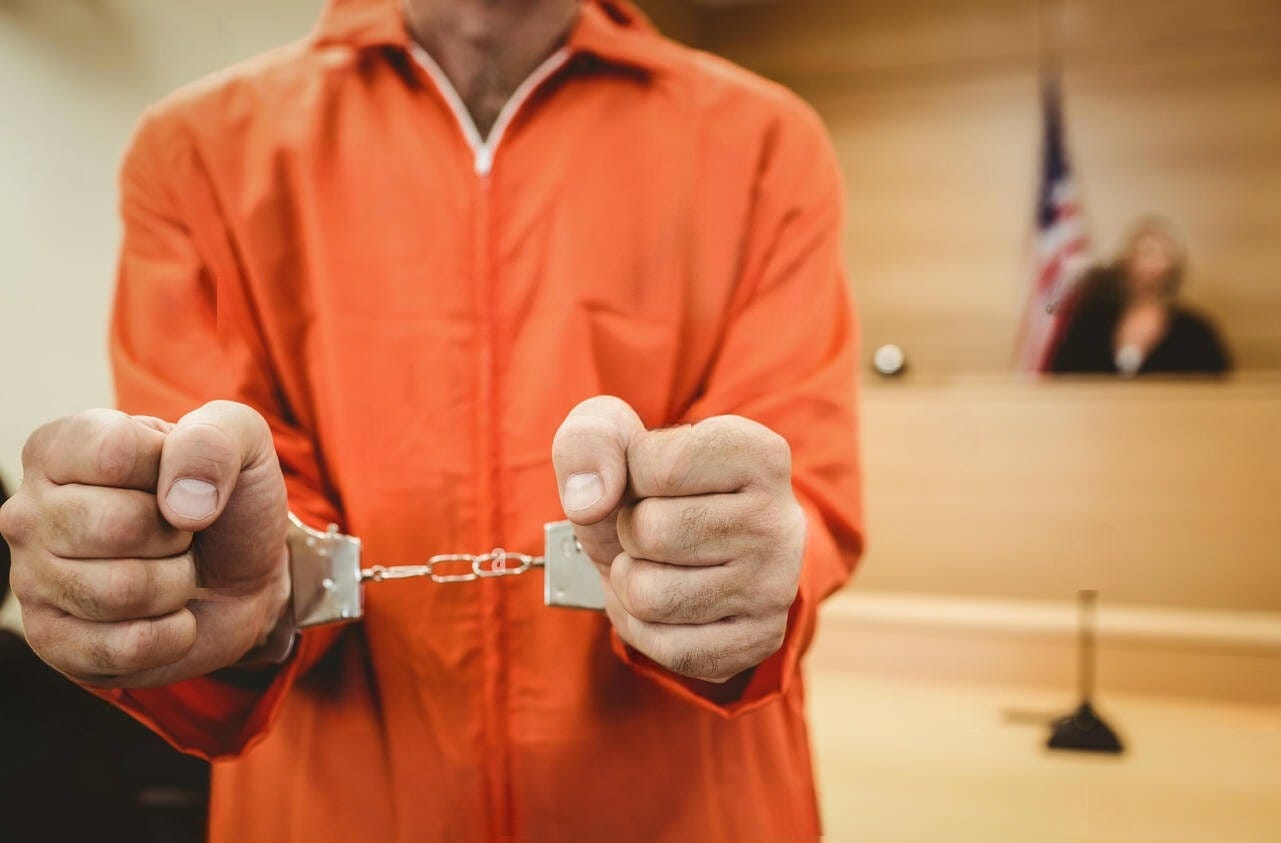Blogging Behind Bars: Paul Boyne Jailed for Daring to Criticize Connecticut Judges
Critic of Connecticut's family courts faces 10 years in prison for alleged cyberstalking.
Paul Boyne, a 63-year-old former Virginia resident, has spent over a year in Connecticut jails without a trial, facing 18 felony charges for alleged cyberstalking. The charges stem from Boyne’s blog, "The Family Court Circus," where he frequently criticized Connecticut’s judiciary, specifically its handling of family court cases. Boyne’s posts, while often inflammatory, targeted perceived corruption in the state’s legal system. Critics argue that Boyne’s situation exemplifies the limits of free speech and highlights how far a state can go to protect its judges from criticism.
In 2023, the U.S. Supreme Court’s ruling in Counterman v. Colorado clarified that for speech to qualify as a "true threat," it must meet a recklessness standard, meaning the speaker must understand that their statements could be perceived as threatening. Boyne's defense hinges on this ruling, arguing that his blog posts, while offensive, do not constitute criminal threats under this new legal precedent.
Boyne remains in custody on a $750,000 bond, unable to secure release to prepare his defense. He has struggled with ineffective counsel, leading some, including Michael Volpe, to label him a "political prisoner." Boyne has been denied access to critical legal resources, raising due process concerns about his ability to mount an adequate defense. As his case continues to unfold, questions surrounding judicial accountability, free speech, and fair trials in Connecticut are gaining national attention. Boyne’s supporters believe he could walk free if given a fair trial, but whether the state will allow that remains to be seen.
By Richard Luthmann
I’ve previously conversed with and covered Paul Boyne, a disgruntled father who became a commentator on the corrupt Connecticut Family Courts.
Michael Volpe has been speaking with Boyne, jailed for over a year for “making threats” against members of the Connecticut judiciary. Here's how Michael Vople describes it:
Paul Boyne is a political prisoner, sitting in a Connecticut prison for having the audacity to criticize judges.
Last July, he was arrested in his home in Virginia and extradited to Connecticut.
Paul A. Boyne, 62, {he’s now 63} of Springfield, Virginia, faces 18 felony cyberstalking charges for alleged online threats targeting three Connecticut judges.
After spending 90 days in a Fairfax County, Virginia jail, Connecticut extradited Boyne on October 19.
Boyne appeared in New Haven Superior Court on October 20, where Justice Eugene R. Calistro issued protective orders prohibiting him from contacting the three judges. With a bond of $750,000, Boyne remains in custody, awaiting his next court date on November 1.
Boyne, who fought extradition from Virginia, said he feared prosecution in Connecticut.
“If I go to Connecticut, you’ll never see me again,” Boyne said. “They’re going to throw me in a hole in the basement of the oldest prison in Connecticut. And the trial might be sometime in the next ten years. And they won’t let me out, and they’re just going to punish me, because it’s a whole bunch of Jews running the entire thing.”
The charges against Boyne stem from a multi-year investigation by Connecticut State Police alleging he operated the contentious blog “The Family Court Circus” from his Virginia home. From late 2017 until Boyne’s arrest in July 2023, the blog, which is currently offline, regularly posted derogatory and sometimes threatening language aimed at exposing the injustices of Connecticut family court.
Paul told me that the State of Connecticut normally has no more than eight months to try someone after they are charged to comply with the speedy trial right, but they have been able to blow past that with impunity.
According to the Connecticut judiciary website, he faces charges ranging from stalking, cyberstalking, and criminal impersonation.
The serious-sounding charges are farcical because they all originate from his blog, thefamilycourtcircus.com.
The blog is racist, homophobic, anti-Semitic, but it also accurately criticizes the Connecticut judiciary.
I said Boyne should represent himself months ago. I also said that to get his case chucked, he should use Counterman v. Colorado, a U.S. Supreme Court case from 2023. After that case, the State of Connecticut must prove (in true-threat cases like Boyne’s) that the defendant had some understanding of his statements’ threatening character. A recklessness standard is enough. I previously said the following:
The Paul Boyne case is a "payback" case. Boyne mouthed off about and exposed crooked judges, and they came for him. I'm not sure how the State's Attorney intends to get around Counterman v. Colorado, 600 U.S. 66 (2023), a recent U.S. Supreme Court case concerning the line between true threats of violence punishable as crimes and free speech protected by the First Amendment. The High Court decided that statements are not free speech if the defendant recklessly disregarded a substantial risk that their statements would be viewed as threatening violence. Boyne has a good faith defense. His Family Court Circus blog was, at times, frustrated, bigoted, and misguided. But it was newsworthy. Boyne should fire his PDs and cross examine the Judge-"Victims" himself. That will be Must-See TV in CT.
Mike Volpe discussed my opinions with Boyne, who isn’t keen on them.
I’m publishing my thoughts on some of the things Boyne should do. These are my own opinions and should not be relied upon by anyone for any purpose. They are purely for discussion purposes.
The Connecticut State’s Attorney is offering Boyne ten years for edgy blog posts - words. I think he should at least get his money’s worth.
Earlier today, I wrote a Substack NOTE saying:
Paul misunderstands two things:
1. Due Process required for incarcerated pro se defendants, and
2. Counterman v. Colorado, 600 U.S. 66, 66, 143 S. Ct. 2106, 2109 (2023), deals with mens rea (criminal intent) not actus reus (bad acts).
The State v. Billings, 217 Conn. App. 1, 287 A.3d 146 (2022) case he cites is nice, but it deals with actus reus can be overturned by the Connecticut Supreme Court on a "contract" to protect the Connecticut judiciary. It is clear that both conduct and unprotected speech can form basis for harassment conviction.
After Counterman, the State of Connecticut must prove in true-threats cases that the defendant had some understanding of his statements’ threatening character. A recklessness standard is enough. This the State Attorney has not done before the grand jury. This they have not done pre-trial. This they cannot do at trial.
If Boyne gets on this horse, he can ride it to victory.
The other issue concerns his “Public Pretenders” and his right to effective assistance of counsel. I said Boyne should dump them and proceed pro se. Boyne says the Connecticut court-appointed attorneys have admitted they are ineffective in his case.
Here are my thoughts, and Michael Volpe and I will discuss them next week on our “The Unknown” podcast.
My Thoughts on Paul Boyne “Helping Himself”
The State of Connecticut would engage in a clearly unconstitutional prosecution by not releasing Boyne pretrial to prepare his defense pro se or giving him access to every opportunity while in custody—access to a law library, the provision of a laptop, and specific and regular time allocations for case preparation.
There are several existing points of Connecticut law that Boyne could eviscerate. The bottom line is that if Boyne makes the proper pretrial requests as a pro se party, he can ask for a limited pretrial release to prepare his defense, or the State Attorney risks any conviction being overturned – not by appeal in the Connecticut courts where Boyne will surely lose – but in federal court either by a direct appeal to the U.S. Supreme Court or by collateral attack under 28 U.S.C. § 2254 or a writ of coram nobis under the All Writs Act.
The potential consequences of denying Boyne access to legal resources are significant and should be carefully considered against the public perception of the fundamental unfairness of the Connecticut Justice system.
The Eighth Amendment of the United States Constitution provides that excessive bail shall not be required, nor excessive fines imposed, nor cruel and unusual punishments inflicted. In our society, liberty is the norm, and detention before trial or without trial is a carefully limited exception. United States v. Salerno, 481 U.S. 739, 755 (1987). United States v. Salerno, 481 U.S. 739, 755 (1987). Pretrial release not only makes it easier for an accused person to prepare a defense but also upholds the presumption of innocence by ensuring that a person is not punished before being convicted. Stack v. Boyle, 342 U.S. 1, 4 (1951).
The importance of Boyne's constitutional rights cannot be overstated.
The biggest issue is that Boyne’s present appointed lawyers have said they are, per se, ineffective. This is a First Amendment / Constitutional Law case. His “Public Pretenders,” which include any standby counsel that may be assigned in the future that isn’t named Eugene Volokh, are not sufficiently competent in First Amendment law to effectively challenge the indictment, make proper pretrial motions, and effectively provide Boyne with a First Amendment Defense. Mainly when the “victims” of Boyne’s First Amendment “crimes” are members of the Connecticut Judiciary.
For example, incarcerated pro se defendants in federal custody are entitled to due process requirements in preparing their defense. Access to legal research, materials, laptops, time to work on their case, appointed private investigators, and other resources necessary to ensure fundamental fairness in preparing their case for trial are all included. United States v. McReynolds, 2020 U.S. Dist. LEXIS 88631, United States v. Malka, 602 F. Supp. 3d 510, United States v. Weingarten, 2024 U.S. Dist. LEXIS 24138 (Courts have provided resources such as laptops with digital discovery, access to printers, and other office supplies to assist in trial preparation).
Paul Boyne should receive no less in Connecticut, perhaps more because of the public perception that he is the Connecticut Judiciary’s “Public Enemy Number 1.” Without the most significant measure of resources provided by the state, Boyne cannot receive a fair trial anywhere in Connecticut.
Boyne will show that he is fundamentally mistreated, and any trial would be fundamentally unfair if existing Connecticut law is followed and no additional allowances are made for him. The unfairness of Boyne's current situation is evident and will not pass constitutional or mass media muster.
Access to Legal Research and Materials
The fundamental constitutional right of access to the courts requires prison authorities to assist inmates in preparing and filing meaningful legal papers by providing prisoners with adequate law libraries or assistance from persons trained in the law. Wine v. Mulligan, 213 Conn. App. 298, Oliphant v. Comm'r of Corr., 146 Conn. App. 499, Sadler v. Corrigan Corr. Inst., Warden, 2005 Conn. Super. LEXIS 826, State v. Fernandez, 254 Conn. 637.
Connecticut is more restrictive than federal law, which says pro se defendants must have adequate time to review legal materials and discovery, draft pretrial motions, and prepare for trial. If they cannot keep legal materials in their cell, they must be given sufficient time in the law library United States v. Saterstad, 2015 U.S. Dist. LEXIS 163710.
The state has yet to provide Boyne with effective counsel—by the Public Pretenders’ admission and Boyne’s own recount. They are not versed in the First Amendment, and no additional First Amendment expert has been engaged or hired.
Connecticut law says a criminal defendant who knowingly and intelligently waives the right to counsel and has been appointed standby counsel is not constitutionally entitled to access to a law library. Wilson v. Comm'r of Corr., 104 Conn. App. 224, Oliphant v. Warden, State Prison, 53 Conn. Supp. 194.
Connecticut law also states that the right to self-representation does not include a right to state-financed library resources where state-financed legal assistance is available. Oliphant v. Warden, State Prison, 53 Conn. Supp. 194, State v. Fernandez, 254 Conn. 637, State v. Shashaty, 251 Conn. 768.
Boyne would eviscerate both these points because where he has a valid legal defense (as he does under the First Amendment), he is entitled to the effective assistance of counsel by lawyers who can articulate the points of law and fact on his behalf. The current lawyers have admitted they cannot.
Furthermore, Boyne's understanding of First Amendment law surpasses his current legal representation’s level of knowledge.
Appointed Private Investigators
An indigent self-represented defendant like Boyne has a Fourteenth Amendment due process right to be provided public funds to obtain expert or investigative assistance. He must make a threshold showing that such assistance is reasonably necessary for preparing and presenting an adequate defense. State v. Wang, 312 Conn. 222, State v. J.M.F., 170 Conn. App. 120.
An indigent, self-represented defendant need not accept representation from a public defender to obtain public funding for reasonably necessary ancillary defense costs. State v. White, 334 Conn. 742, State v. Wang, 312 Conn. 222.
This standard is generally on par with federal law, where pro se defendants may request funds for the services of investigators, experts, and other resources needed to prepare their defense. These requests should be made through the court, often with standby counsel United States v. Saterstad, 2015 U.S. Dist. LEXIS 163710.
But I ask you, have Boyne’s public pretenders sent private investigators to interview the potential witnesses against him? Of course not. They are all members of the Connecticut Judiciary.
Boyne needs his own Private Investigators. When they approach the Connecticut judges, none of them talk. The jury should hear about it.
Fundamental Fairness in Preparing The Case for Trial
The due process principle of fundamental fairness requires that a state afford an indigent self-represented defendant a fair opportunity to present his defense by assuring him access to the essential tools of an adequate defense. State v. Wang, 312 Conn. 222, State v. White, 334 Conn. 742.
States must shoulder affirmative obligations to ensure all prisoners have meaningful court access. Wine v. Mulligan, 213 Conn. App. 298, Smith v. Warden, 1997 Conn. Super. LEXIS 1366, Harnage v. Lightner, 163 Conn. App. 337.
However, Connecticut law says prison administrators should be accorded wide-ranging deference in the adoption and execution of policies and practices that, in their judgment, are needed to preserve internal order and discipline and to maintain institutional security. Anthony A. v. Comm'r of Corr., 339 Conn. 290, Harnage v. Murphy, 2012 Conn. Super. LEXIS 5851, Harnage v. Murphy, 2012 Conn. Super. LEXIS 240.
Herein lies Boyne’s opportunity. While pro se defendants do not have a right to every resource available to non-incarcerated individuals, even under federal law, they must be afforded reasonable access to legal materials and other tools necessary to prepare their defense, balanced against the constraints of the penal system. United States v. Bundy, 2017 U.S. Dist. LEXIS 2845, United States v. Brugnara, 856 F.3d 1198, United States v. Robinson, 913 F.2d 712.
There is no “balancing act” that the Connecticut judiciary can engage in that would justify any impediments on Boyne for the “orderly operation” or “safety and security of a penal institution.” At least not one that would not be laughable and pass media and appellate muster.
Boyne should ask for release so he can meaningfully prepare his defense. Anything short of that would render any guilty verdict obtained by the State Attorney as constitutionally dead on arrival.
In summary, Paul Boyne, as an incarcerated pro se defendant in Connecticut, is entitled to meaningful access to the courts, which, in most cases, can be provided through adequate law libraries or legal assistance State v. Fernandez, 254 Conn. 637, Smith v. Warden, 1997 Conn. Super. LEXIS 1366. Defendants have a due process right to public funds for expert or investigative assistance if reasonably necessary for their defense State v. Wang, 312 Conn. 222.
If he is not outright released, Boyne should be constitutionally entitled to access a law library—without bent and ineffective standby counsel—and the provision of laptops and specific time allocations for case preparation in lock-up.
The principle of fundamental fairness requires that Paul Boyne has access to the tools necessary for an adequate defense. Right now, these tools are not being supplied. As such, Paul Boyne should walk for constitutional reasons.
What do you think?


















